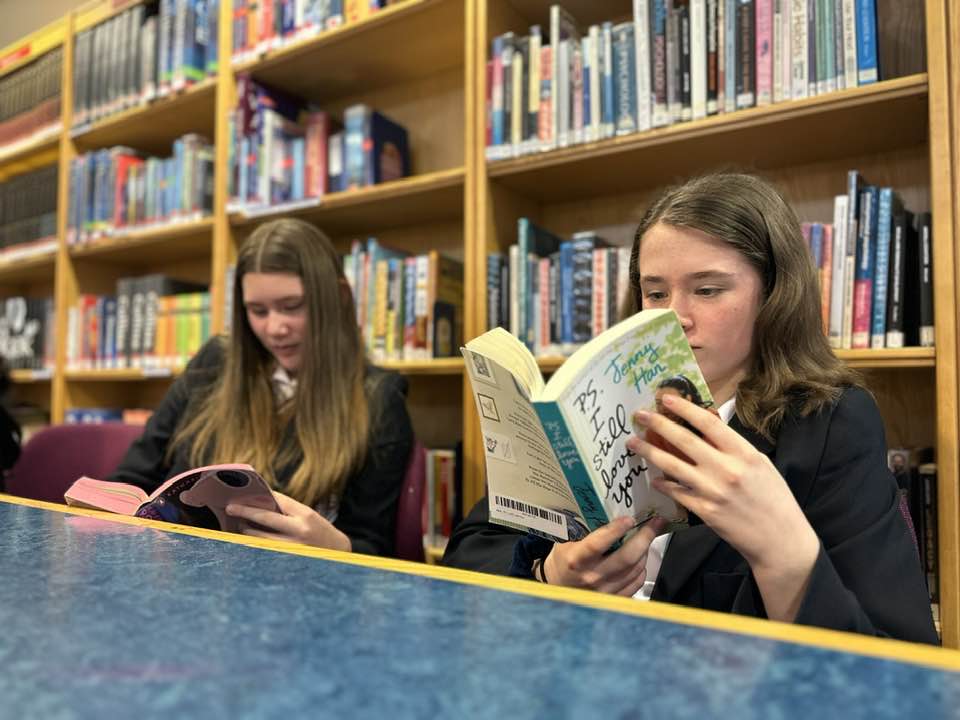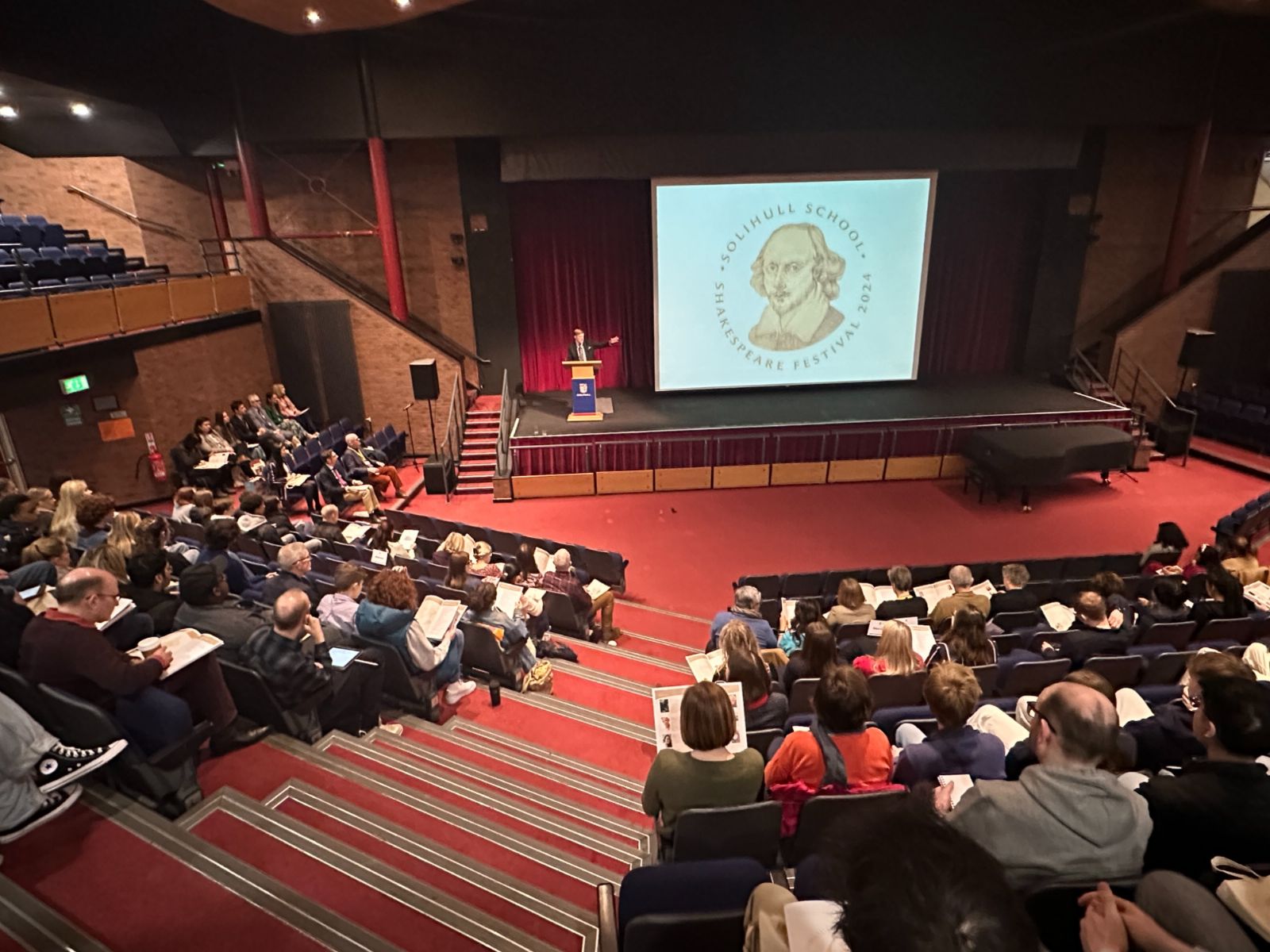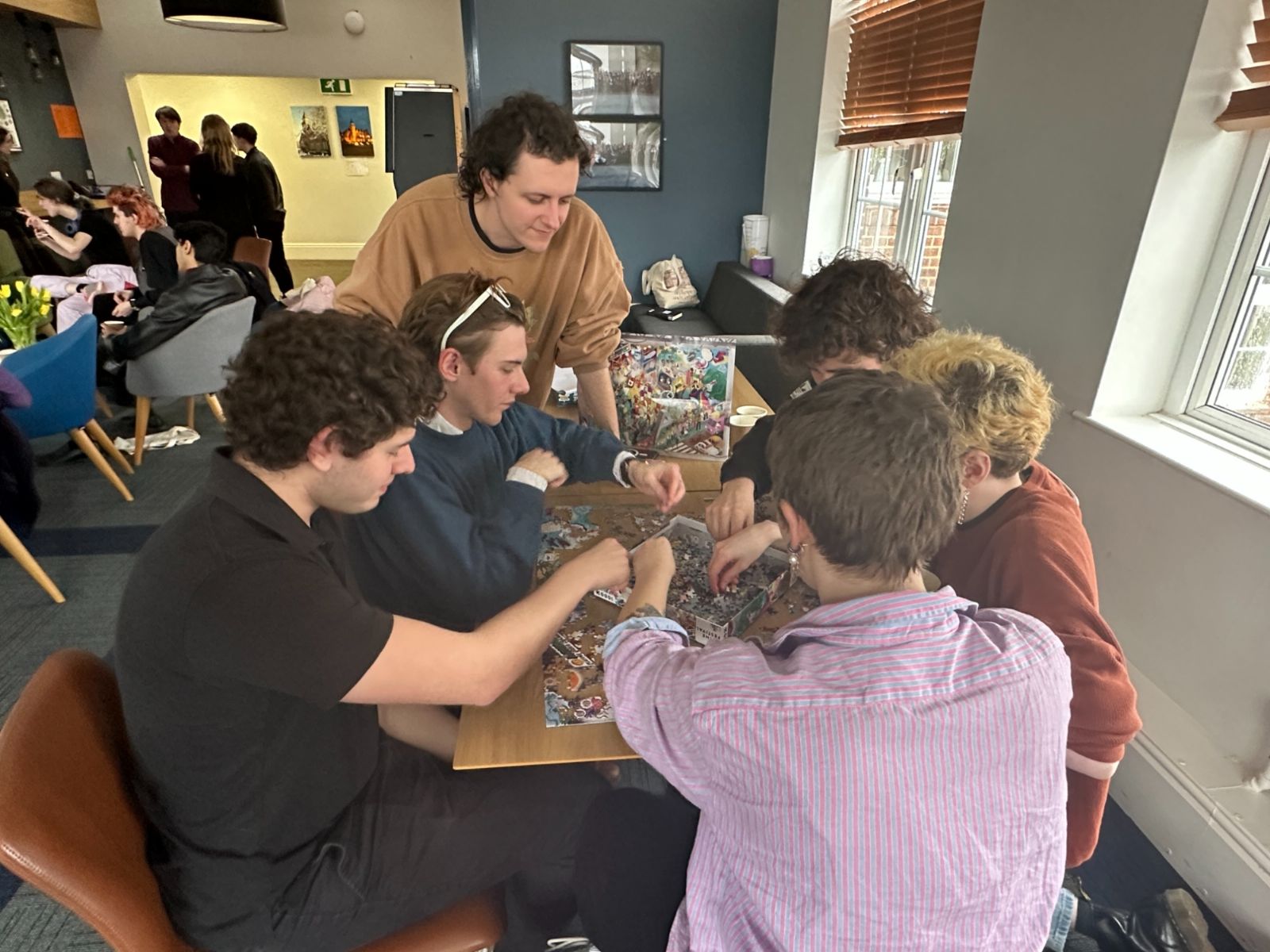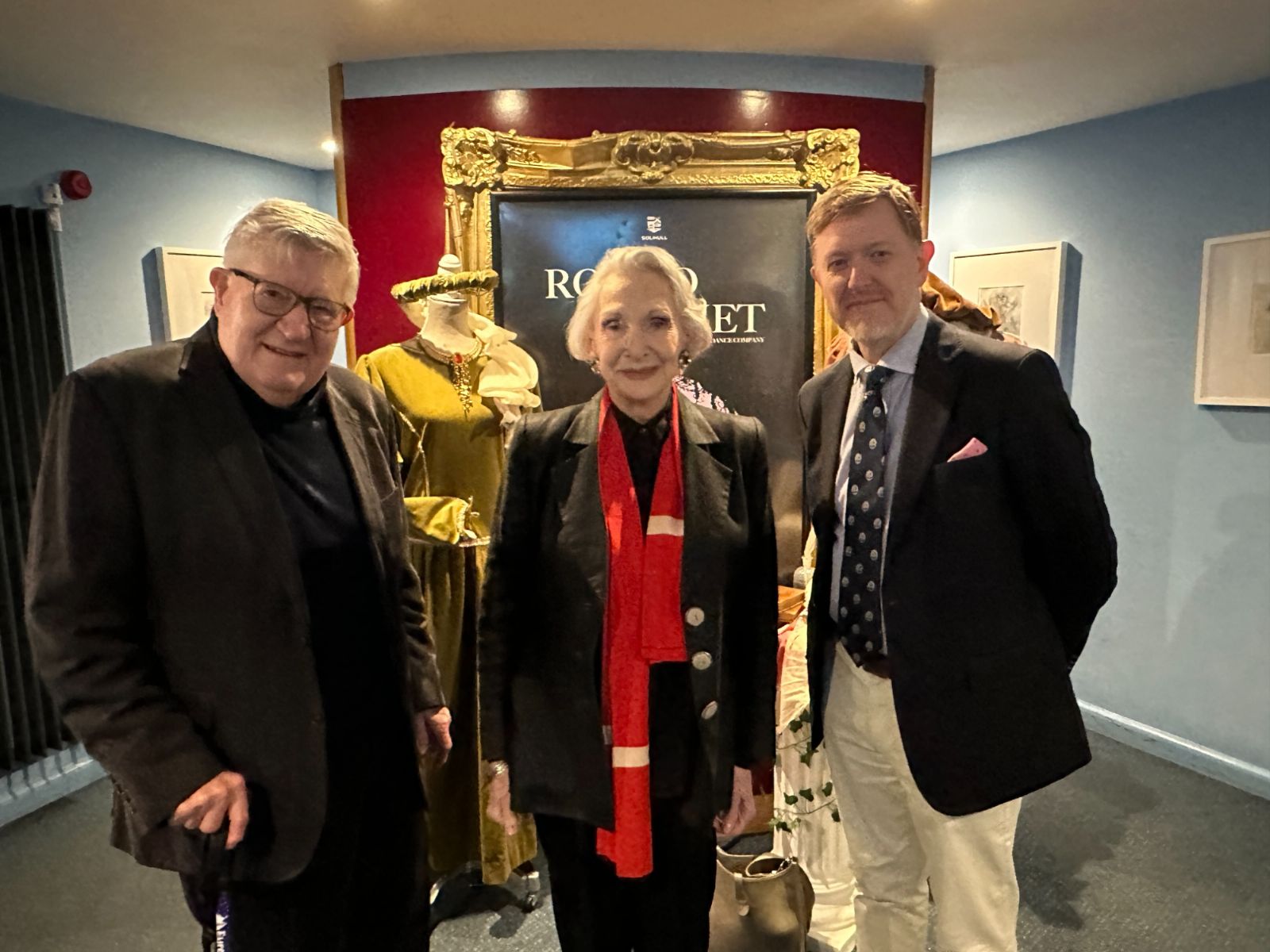Exploring what it means to be human through our English Curriculum

Dr Stuart Hart, Head of English explains how Solihull utilises the English curriculum to provoke discussions which sharpen precision of thought, kindle intellectual curiosity, develop research skills, and foster a profound appreciation of the life of the mind.
In the first fortnight of January, when we encouraged pupils to put down their device and pick up a book, there was far more method in our madness than simply offering pupils a chance to escape homework for two weeks! The ‘Drop Everything and Read’ initiative was part of a broader strategy within school to step away from the everyday and invest in their emotional, philosophical and moral development through the joys of curling up with a good book.
Encouraging and nurturing in our pupils a love of the written word lies at the heart of our English curriculum in Solihull School pupils from age 3 upwards – and particularly from when they enter the Senior School.
In all that we do, we are seeking to prepare and inspire Solihull School pupils to become society’s next leaders and pioneers; we see developing a critical appreciation of different forms of literature as a core resource in unlocking the skills they will need to take their place in the world as compassionate, reflective and responsible individuals. 
Through our expansive English curriculum, which includes not only some of the best-loved works of poetry, drama and prose in history, but also many more challenging pieces that provoke serious discussion and reflection, we seek to expose pupils to a range of literature from different genres, cultures and perspectives - sharpening their critical-thinking and evaluative skills and asking them to reflect upon how writers shape meaning through language, tone, imagery and form.
This is of course important to their academic studies, as they approach the important external examination years. Fostering a love of the written word and their ability to analyse, reflect upon and explore different types of literature, sets pupils up for success at GCSE and beyond. However, we seek to go much further in our study of English at Solihull. Central to our philosophy as a school is the responsibility we bear to help our pupils to develop a strong moral compass. By sharpening their sense of how literature invites us to think about some of the most urgent and pressing issues of the day, we can encourage conversations about what it means to be human, helping pupils to find their own critical and creative voices, and expressing their ideas with flair, sophistication and rigour.
Amongst the works we study, from Thirds (Year 7) onwards up into Sixth Form, are pieces which deal with questions of identity, moral responsibility, civic duty, nationhood, the spiritual life, race, gender, climate change and much more. We seek to deliberately provoke discussions in class which sharpen precision of thought and set homework which kindles their intellectual curiosity, develops their research skills, and fosters a profound appreciation of the life of the mind.
The benefits of this approach stretch far beyond the study of English and into other subjects too, aligning with the work of Mrs Rooney and her team through the Wellbeing and Personal Development curriculum. Indeed, the positive impact stretches far into the acquisition of critical life skills and habits; developing our pupils’ resilience and willingness to ‘lean into’ difficult challenges – be they academic, pastoral, sporting or creative.
There’s a very good reason that alumni of the school describe a Solihull education as something that stays with them into and throughout their adult life. We seek to make sure the time our pupils spend with us is meaningful, setting them up for not only academic success, but success in all avenues that their life will take them into.
Next year, we're looking forward to holding the second Solihull Shakespeare Festival, when we'll again welcome some of the most eminent international Shakespearean scholars to speak about the Bard and his plays.
Last time, the festival – which was aimed primarily at our A Level students and scholars, as well as those from our neighbouring local state schools and independent schools from across the UK - was a fabulous success with almost 500 attendees. Guests enjoyed a day of lectures and workshops with academics from Princeton and Arizona State University in the U.S. as well as eminent British universities and academic organisations, including Oxford, Cambridge, UCL, the Shakespeare Institute, and more.
We arranged a Shakespearean-themed concert in the evening featuring the City of Birmingham Symphony Orchestra and an 'in conversation' event with renowned actress Dame Siân Phillips, as well as a production of Titus Andronicus by the Jesus College Oxford Shakespeare Project.
Next year's event, which we will be holding on Saturday 14 March 2026, promises to be just as big – keep an eye out for details!




